The best alternatives to AirTag for Android: It took a long time, but finally, Apple presented it yesterday, along with the new iMac, Apple TV, iPad Pro, locator tags, and the Apple AirTags. With a price that starts at 30+ USD per unit, they are born under the same premise as the rest: being able to find with your cell phone where the keys are or anything else.
The 6 best alternatives to AirTag for Android
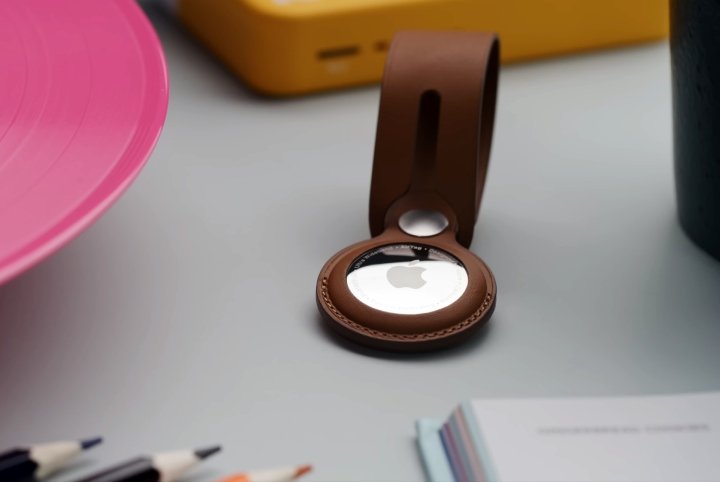
As expected, the Apple AirTag focuses on the Apple ecosystem, although it is not the only object locator available. Below, we list five other Apple AirTag alternatives compatible with Android.
Tile Pro (2022)
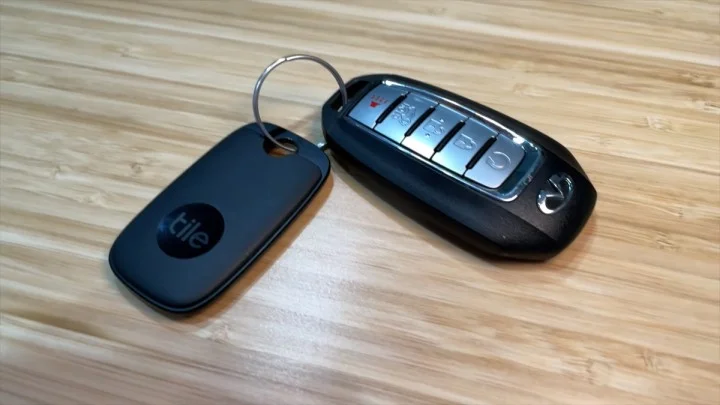
When we talk about gadgets for finding objects, the standard is Tile. Several models are available with similar features and reasonable prices. The 2022 Tile Pro boasts a one-year battery life and a range of 120 meters.
With a price of just over 30 USD, the Tile Pro is compatible with Android and iPhone phones and integrates perfectly with Alexa and the Google ecosystem. The only downside is that the current model does not have ultra-wideband UWB technology, as with the Apple AirTag: it is a Bluetooth tracker.
Measuring 58.8 x 33.6 x 7.7 cm, the Tile Pro is larger than the Apple AirTag. With a square design that includes a buckle for attachment, the Tile Pro is also waterproof, although with IP55 certification, which is lower than the Apple AirTag’s IP67.
Samsung Galaxy SmartTag2
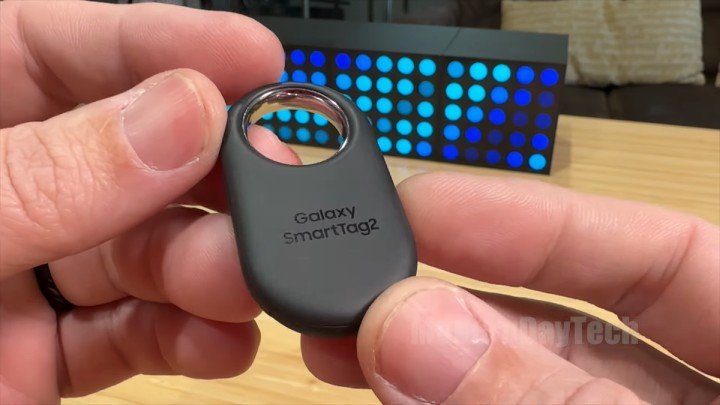
It seemed clear that Apple would release its tracking devices before Samsung, but finally, the South Koreans advanced on the right by presenting their Galaxy SmartTag along with the Galaxy S21, which is already in its second generation with the launch of the Galaxy SmartTag 2.
The Galaxy SmartTab 2 comes with UWB as standard, has a two-year battery life, and changed the pill-shaped design with a hole so you can attach it to practically anything you want to track. The similarities between SmartTags and AirTag continue as both are compatible only with mobile phones of their brand.
In addition, both Apple and Samsung use their phones to create a network that identifies devices that are out of range, with SmartThings on the part of Samsung and Apple’s billion devices on the other.
Chipolo One
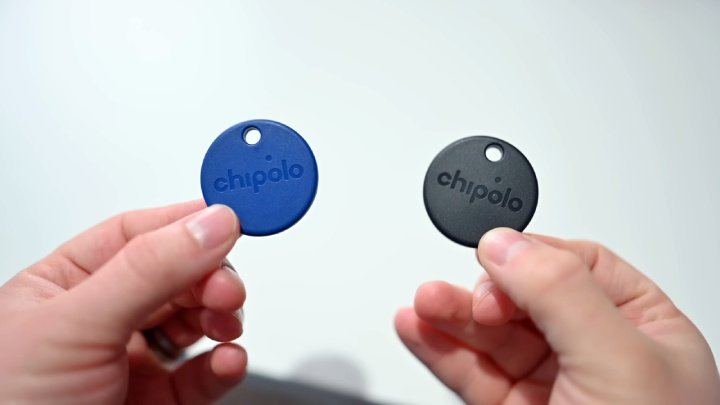
The Chipolo One is another universal tracker that is compatible with any mobile phone running Android 7 and integrates with all existing assistants: it is compatible with Siri, Google Assistant, and Amazon Alexa.
It has a circular and compact design, with a diameter a little larger than the AirTag but thinner and with much, much more color. Its maximum range of action is 60 meters without obstacles, while AirTags should reach approximately double that, 120 meters.
The Chipolo One is waterproof, with IPX5 certification, and, like the Apple AirTag and several of the alternatives, includes a CR 2032 battery. Its estimated autonomy is around two years until it needs to be changed.
Curve GPS tracker
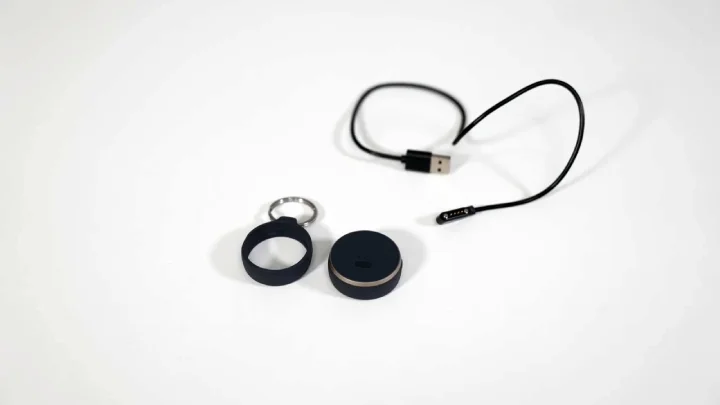
Curve is a GPS locator that is a little different from the Apple AirTag and the rest of the alternatives we have seen before. It includes its own integrated SIM, so you do not depend on being in the range of Bluetooth or the ultra-wideband.
This locator, which is much larger and plumper than the AirTag, also has a circular design and allows you to locate something without depending on a network of billions of Apple or Samsung cell phones: it is located just like a cell phone, with GPS, data, Bluetooth and Wi-Fi.
To get the most out of Vodafone Curve, you need to pay a monthly subscription of 2 euros that guarantees free roaming in 90 countries. It is a Swiss army knife with more tools than the Apple AirTag, although, in exchange, its battery lasts seven days, while the AirTag’s should last more than a year.
Kippy EVO V-Pet Tracker
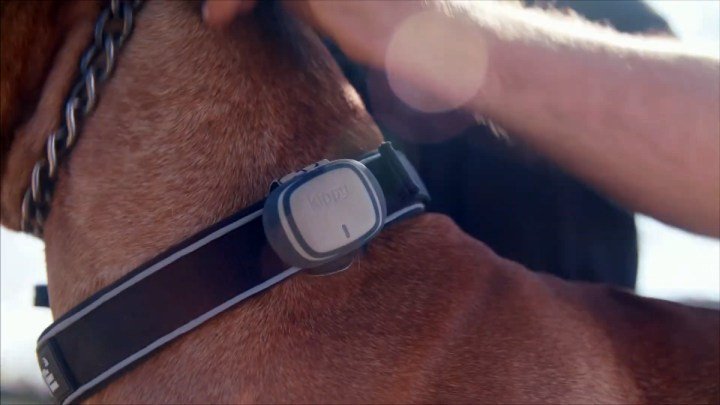
Following in the same wake as the Curve and also from Vodafone, we have the Kippy, a pet-specific locator. It is somewhat larger than other trackers on the list and is designed to be included in pet collars weighing more than 4 kilos, that is, medium to large in size.
Technically, the Kippy V-Pet Tracker has the same technology as the Curve, which includes an integrated Vodafone SIM and a mix of four location technologies: GPS, Bluetooth, Wi-Fi, and mobile data. It’s more of an old-school solution, like locating a phone than using UWB or Bluetooth to connect with phones, like the Apple AirTag.
As a specialized tracker, the Kippy V-Pet Tracker incorporates unique pet features that make it more suitable for this function than an Apple AirTag: You can delimit a “safe zone” or activate a flashing light from your mobile to locate the pet in a dark area. It is also waterproof.
Bonus: Sony Xperia SmartTags

One of the pioneers in smart tags was Sony, with its Sony Xperia SmartTags from 2012. Although the name is practically the same as the Samsung alternative, it is a very different device: it is not used to find anything.
The Sony , Therefore, does not have a battery or Bluetooth connectivity of any kind, and it cannot be used to know where something is. In fact, if it is not literally glued to a mobile phone with NFC, it is useless.
Can I do the same on Android?
As we have seen, there is no shortage of object locators with a philosophy similar to that of the Apple AirTag and compatible with Android. However, the most serious alternative is the Galaxy SmartTag 2 when we compare connectivity and autonomy.
Locators with GPS and integrated SIM, such as Curve or Kippy from Vodafone, work independently of mobile phones and user networks, but in exchange, they have a much shorter autonomy: around a week, compared to more than a year.
Technically, the Galaxy SmartTag2 as a device is the closest thing to the Apple AirTag, and so is the infrastructure set up to locate out-of-range beacons using crowdsourcing. Samsung does this with Galaxy devices that voluntarily decide to participate, while Apple takes advantage of the brand’s billions of devices.
Android is still preparing its own system to find devices using the billions of active Android phones. When it does, Android trackers will take a big leap.
Read Also:
